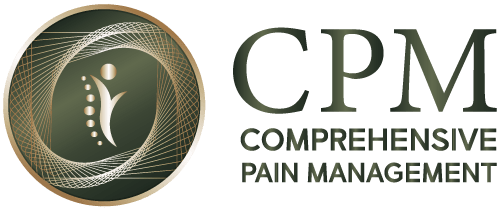8841 East Bell Road, Suite 101, Scottsdale, AZ 85260 | Rate: ★★★★★
Bursitis Treatments in Scottsdale
Do you have pain, swelling, or stiffness in your joints? It might be bursitis. This condition can make it hard to move and get through your day. At Comprehensive Pain Management in Scottsdale, we treat bursitis to help you feel better and move with ease.
What Is Bursitis?
Each joint in your body has small sacs filled with fluid. These are called bursae. They help reduce friction between bones, muscles, and tendons. When a bursa becomes swollen or irritated, it causes bursitis. That leads to pain, tightness, and trouble moving the joint. Bursitis often shows up in the hip, elbow, knee, shoulder, or heel, but it can affect other joints too.
Types of Bursitis
Here are common types of bursitis and what they feel like:
- Trochanteric bursitis is pain on the outer hip that gets worse when walking or lying on that side.
- Prepatellar bursitis causes pain and swelling at the front of the knee, often from kneeling.
- Olecranon bursitis leads to swelling at the tip of the elbow, which gets worse with movement or pressure.
- Retrocalcaneal bursitis is pain behind the heel that worsens with long periods of walking or standing.
- Pes anserine bursitis causes pain on the inner knee, especially when climbing stairs or walking a lot.
Note: Bursitis can affect other joints too, not just these common areas.
Signs You Might Have Bursitis
- The joint feels sore or painful
- Swelling or redness in the area
- Hard to move the joint
- The joint feels warm to the touch
- Pain gets worse with movement or pressure
If you’re noticing these symptoms, don’t wait. Get checked by a specialist in Scottsdale to see if bursitis is the cause.
How We Treat Bursitis in Scottsdale
The first and most important step is to get the right diagnosis. Knowing exactly what’s causing your pain helps us choose the best treatment for you.
At Comprehensive Pain Management, we offer several options to relieve your symptoms and help you heal:
Regenerative Medicine
Boosts your body’s own healing power to calm inflammation and repair tissues.
Trigger Point Injections
Loosens tight muscles that may be causing pain near the joint.
Epidural Injections
Delivers strong anti-inflammatory medication right to the area causing pain.
Radiofrequency Ablation
Uses heat to block pain signals from nerves, giving long-lasting relief.
Discseel® Procedure
A non-surgical method to fix disc problems that may be causing bursitis-related pain.
Physical Therapy
Custom exercises to improve how your joints move, build strength, and avoid future pain.
What Causes Bursitis?
Different joints have different causes. Here are a few:
Type of Bursitis | Common Causes |
Outer hip bursitis | Repeated movement, injury, or arthritis |
Knee bursitis | Too much kneeling or impact to the knee |
Elbow bursitis | Leaning on the elbow or bumping it |
Heel bursitis | Overuse, tight tendons, or poor footwear |
Inner knee bursitis | Extra weight or poor joint alignment |
How We Diagnose Bursitis
Our team at CPM in Scottsdale will start with a full exam. We check your joint for swelling, tenderness, and movement. If needed, we use X-rays, MRIs, or ultrasound to rule out other problems and confirm bursitis.
Effective Bursitis Treatment in Scottsdale
If you’re looking for safe and proven bursitis care, we’re here to help. Our treatments are designed to match your condition and get you back to your normal life. Book your appointment today to take the first step toward relief.
FAQs about Bursitis Treatment in Scottsdale
Who should I see for bursitis treatment?
A pain or joint specialist can diagnose and treat bursitis properly.
What works best to treat bursitis?
Rest, anti-inflammatory meds, physical therapy, or injections often help most.
Is it expensive to treat bursitis?
Treatment is usually affordable, and many plans cover the cost.
Can bursitis go away without surgery?
Yes, most people get better with non-surgical treatments and care.
Is it okay to treat elbow bursitis at home?
Home care helps mild cases, but see a doctor if it doesn’t improve.
Does heel bursitis get better with treatment?
Yes, the right treatment can ease pain and help you walk better.
Dr. James KellerShabrokh
Dr. James KellerShabrokh is a board-certified specialist in Physical Medicine and Rehabilitation, focusing on spine, joint, muscle, and nerve injuries. He combines rehabilitative care, minimally invasive procedures, and preventive strategies to restore function, improve mobility, and provide long-term pain relief.
